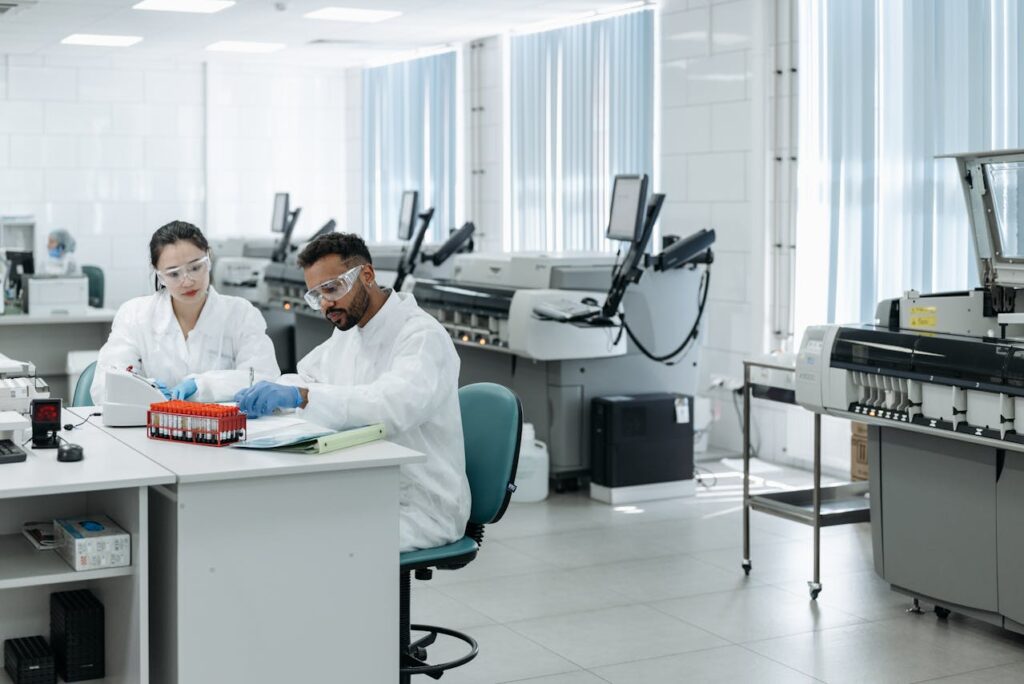A key factor in research is effectively measuring a response and MLR assays give scientists a strong way to measure immunity. It helps in looking at how well the treatment works. This method is very important for immunotherapy. It’s a fresh approach to treating diseases like cancer. MLR assays also have a big role in the study of transplants. The method aids in understanding how well the immune system accepts new organs. With its ability to offer reliable results, MLR assays support two major fields in medicine. It helps scientists look deeper into immune responses and improve therapies and transplant strategies.
MLR Assays: Basics and Function
MLR assays work on the principle of Mixed Lymphocyte Reaction. In this method, scientists mix different types of lymphocytes. These are a special kind of white blood cells. The test measures the reactions among these cells to determine the immune response. This assay detects the level of cell activation. This gives important data on how strong the immunity is. MLR assays can be altered for certain needs. This makes it a flexible tool for various research purposes. Used continuously, it promises reliable and repeatable results vital for understanding many immune-based situations and therapies, particularly within the fields of immunotherapy and transplant science.
MLR Assays and Immunotherapy Evaluation
MLR checks the immune response in reaction to different therapies. It aids scientists in spotting active immunity prompted by particular therapies. This method guides the development of immunotherapy tailored to patient needs. Strongly activated lymphocytes point out a positive therapy outcome. Therefore, MLR assays assist in predicting the possible effectiveness of treatments. This assurance facilitates concentration on the most promising therapies. Moreover, it helps in tracking immunity changes through therapy. Doing this consistently allows scientists to see how immunity evolves together with the treatment plan. Thus, MLR assays significantly guide the improvement and appraisal of immunotherapy procedures.
Decoding Immune Responses Using MLR Assays
MLR’s capacity to analyze immune reactions gives valuable information about immune biology. It helps scientists comprehend how various therapies impact the immune system. In this procedure, they investigate cell behaviors and their secreted substances. These findings disclose mechanisms through which immunity is activated or altered. Such information is important for bettering therapies for possible improvements or changes. MLR assays also help distinguish between beneficial and detrimental immune reactions. Understanding these differences helps fine-tune immunotherapy approaches so they align with desired results. Overall, the MLR assay supports thorough comprehension and direction of immunity inside various therapeutic contexts, including immunotherapy.
MLR Assays in Transplant Research
For transplant research, MLR Assays help study organ rejection. When injected with foreign cells, it sees how the immune system reacts to potentially transplanted organs. This decides whether the immunity repulses or takes in the new organ. Finding this out early helps make sure that only suitable organs are used for transplant. Besides, MLR assays guide the development of strategies to reduce rejection risks. These strategies aim at conditioning immunity prior to transplant occurrence so the immune system does not reject organs. With its detailed analysis role, MLR assays appear vital in improving methods and security within the transplant research field.
Predicting Transplant Success Using MLR Probes
MLR assays offer predictions about the success of transplants by evaluating immediate immune reactions. Immediate strong responses indicate probable organ rejection. However, MLR insightful probing could steer preventative measures at the first stage itself. This guarantees better organ acceptance post-procedure. Furthermore, it assists in designing personalized transplantation plans based on detected immunity responses. Adapting plans according to individual requirements can significantly upsurge success rates and control rejections. Therefore, through real-time tracking of immunity responses, MLR assays significantly affect the effectiveness of transplant plans.
Conclusion
In conclusion, both immunotherapy improvements and transplant studies depend significantly on the use of MLR Assays. It helps understand the immune response more thoroughly by assessing many variables, including the strength of the reaction and cell activation patterns. The ability of MLR assays to predict success in transplants and customize therapy strengthens its importance in contemporary medical research. Overall, this method offers beneficial insights that help create effective therapies and improve practices in organ transplantation by enabling researchers to analyze real-time immune reactions and possible changes in immunity over time.

